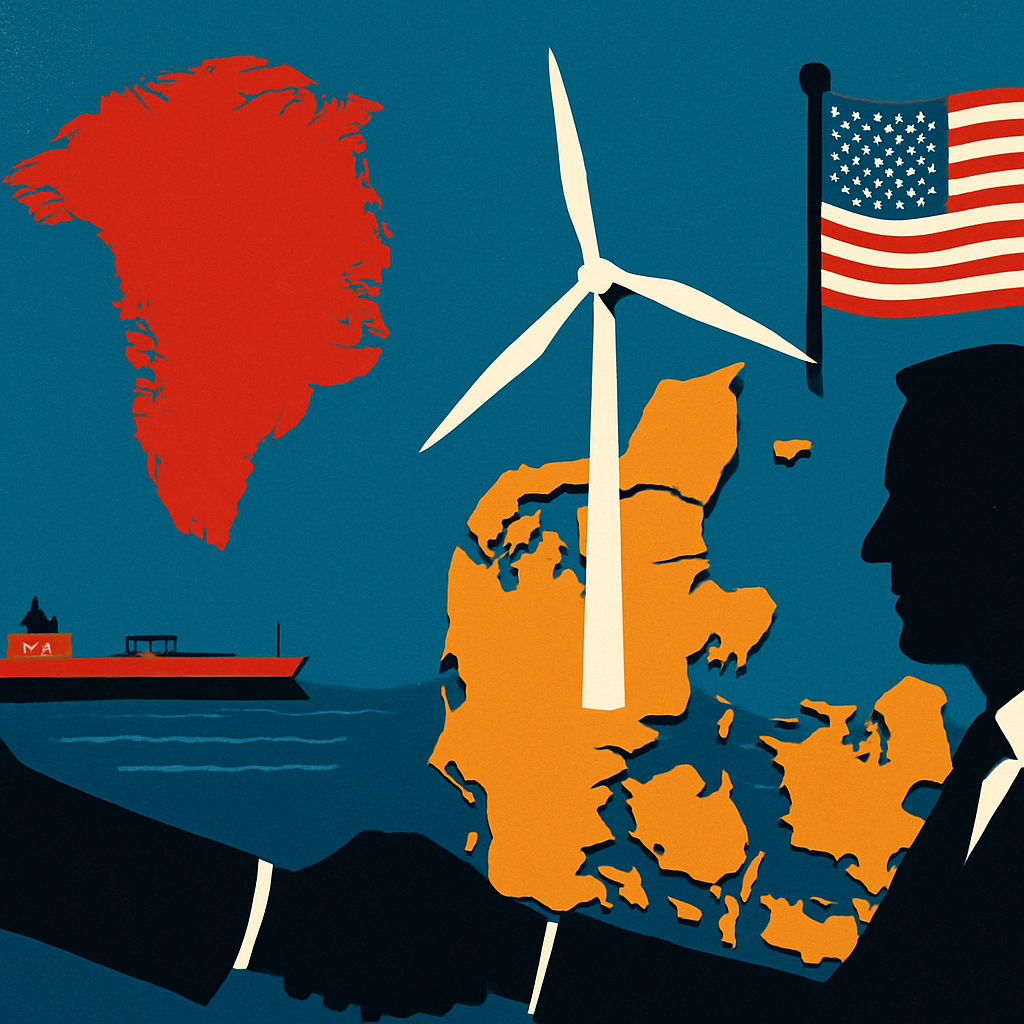Denmark is facing renewed pressure from the United States, highlighting how commercial disputes and geopolitical tensions can quickly intertwine. Just hours after Denmark’s foreign minister Lars Løkke Rasmussen appeared alongside California governor Gavin Newsom, the US government halted work on a $1.5 billion offshore wind project owned by Danish energy developer Ørsted. Markets reacted sharply, with Ørsted shares plunging to record lows.
For Danish officials, the timing revived a lingering concern: how should a close ally respond when the relationship starts to resemble a strategic threat? The unease goes back to former President Donald Trump’s 2019 suggestion of buying Greenland, a semi-autonomous territory of Denmark. Although the proposal was dismissed at the time, it revealed Washington’s growing focus on the Arctic and Greenland’s mineral wealth.
Strategic Concerns Over Greenland
Denmark and Greenland remain wary of Trump’s rhetoric, which some, including former Danish prime minister and NATO chief Anders Fogh Rasmussen, compare to that of Vladimir Putin and Xi Jinping. Rasmussen has argued that autocratic behavior should be met with firmness, warning that appeasement could embolden Russia and China in places such as Ukraine and Taiwan.
Greenland, with its population of just 57,000 people, has struggled to reconcile its reliance on the US for security with Washington’s aggressive expansionist tone. Its business and energy minister Naaja Nathanielsen admitted that many had been “naive” about US intentions. While the US already operates a significant military base there, Trump’s push to acquire Greenland was seen in Copenhagen and Nuuk as more about optics than necessity — “a real estate deal,” as one Danish official put it.
Denmark’s Response and European Backing
Initially, Denmark attempted a cautious approach, emphasizing shared interests in Arctic security. But in recent months, it has grown more assertive, deploying frigates, fighter jets, and helicopters to Greenland to underscore its sovereignty. France also offered symbolic backing when President Emmanuel Macron visited Greenland, pointedly remarking that allies should not act in ways that undermine each other.
Ørsted and the Shadow of Politics
Ørsted, which is 50% state-owned, now finds itself at the center of what some see as a “shadow war” over Greenland. While some observers doubt that the suspension of Ørsted’s US project was directly linked to Denmark’s political gestures, the optics suggest a correlation. Analysts note that Washington has also blocked similar projects by foreign energy groups, including Norway’s Equinor, although Oslo benefited from the lobbying power of former NATO head Jens Stoltenberg.
Looking Ahead
For now, Denmark appears to be playing for time. Trump’s previous Greenland overture faded quickly in 2019 as his re-election campaign ramped up, and Danish officials hope this renewed pressure may eventually subside as well.
But for Ørsted, time is scarce. Already under financial strain, the company must navigate both market challenges and geopolitical headwinds. For Denmark, the broader question remains: how to balance a vital alliance with the United States against the risks of becoming a target in a new era of power politics.








